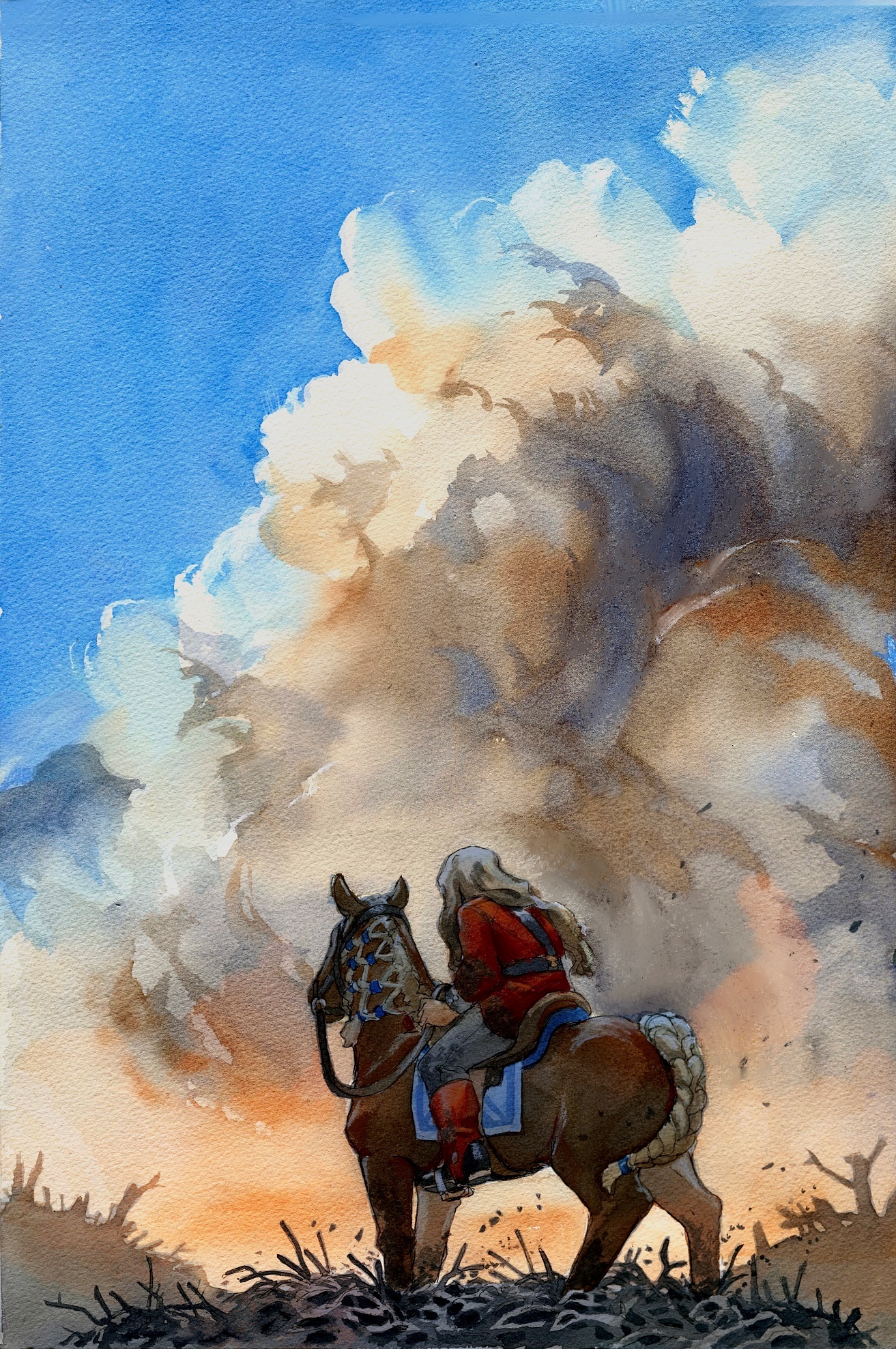Chapter 6:
Prescribing Burns
Three days after her twenty-second birthday in spring, a letter arrived for Moth from Tully.
It was early in the morning, and Moth sat on the front step of the house and watched the sun rise, her eyes looked towards the south, towards Tiding Range.
“Mere?”
Moth looked up to see the solid shape of her father coming over the hill and up the pathway. His breath made a misted halo over his head, as he shrugged his jacket tighter about his shoulders. He was older – gray had crept into his eyebrows and beard, and into his warm eyes, and he seemed a little smaller now then Moth remembered him.
“Hello, Dad.”
Norwin trudged up to her, reaching out his hand for hers. She gave it to him and he kissed it – she could feel the softness of his whiskers – and he smiled at her. “You’re got an early start.”
“I like to see the sun get up.”
He straightened and watched it climb over the edge of the field, touching everything in pale pink. “How are you?”
Moth forced a smile. “Things aren’t what I wish, but there it is.”
